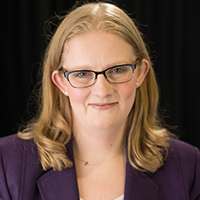Putting the focus on Good Clinical Practices for patients’ own studies.
Increasing numbers of patient advocacy groups are carrying out their own research projects, including natural history studies and patient registries. This research is an important step in generating interest from academic or industry researchers, and assuring that all research is conducted using Good Clinical Practices (GCPs) maximizes its ability to appeal to these potential partners.
“Research-experienced patient advocates may have in-depth knowledge of research practices,” notes Stephanie Christopher, MA, CCRC, FACRP, Director of Patient Advocacy at Pfizer. “For patient advocates who are involved in research for the first time, however, it is critical that appropriate educational resources are available. This will give them the tools to ensure they comply with regulations while tailoring research to their community’s specific needs, generating useful data for future clinical trials and avoiding a risk of having to start over.”
“We want to empower rare disease patients to contribute information about their disease that potentially will help find cures or therapies to improve symptoms,” says Janet Mauro, BA, CCRC, IAMRARE® Implementation Co-lead at the National Organization for Rare Disorders, Inc. (NORD®). “Education is the key to this empowerment and to enabling patient advocates to drive research. Clinical research is complicated, with a need to understand all parts of a study protocol, such as why we have inclusion criteria, how often study participants need to come to the site or enter study data, and how the informed consent process works. Similar educational approaches can be used to train new research coordinators, including explaining why the various activities are required. Even in a minimal risk study, the participant must be protected.”
Mauro notes that a roadmap is an important step to ensure on-target progress, yet inevitably, obstacles arise and need to be overcome. “By educating patient advocates who do not have a research background, they can have a better understanding of [GCPs] by study launch and be able to gain the backing of medical advisors for their studies,” she states. NORD provides guidance for member organizations on patient-led studies to achieve a high level of rigor in gathering patient insights. This includes establishing a registry advisory board with representation from patient and caregiver members working with representatives from their medical advisory board to help set up surveys for success.
“A key step is to educate patient advocates on how to navigate interactions with the institutional review board (IRB), especially avoiding the trap of viewing the IRB as the ‘bad guy,’” says Christopher. “In fact, the board acts as an independent third party that can ensure research is done in an ethical way that protects the patients that the advocacy group serves, reviewing decisions and ensuring that everyone’s goals are met.”
Educating Patient Advocacy Groups
Join Stephanie and Janet at ACRP 2023 [April 28 – May 1; Dallas, TX], where they’ll share patient advocacy research strategies and techniques for developing an education program for novice researchers. View complete schedule.

“When designing research, it is vital to have a clear objective and to avoid the temptation to try to answer too many questions and fix everything with one study,” says Christopher. “The objective must be narrowed down to something achievable – it could be as simple as identifying how many people have a particular disease or subvariant, for example. It can also build on earlier work. Validated survey instruments may already exist, for example, to assess quality of life. Starting with these can help standardize findings and add to existing knowledge.”
Christopher points out that it is especially important not to over-burden the participant by requiring every available piece of medical information, taking time to work out exactly what is needed for the study. “Many rare disease patients have participated in clinical trials and understand first-hand how burdensome these can be,” she notes. “This lived experience can be applied to new study designs.”
Author: Jill Dawson



